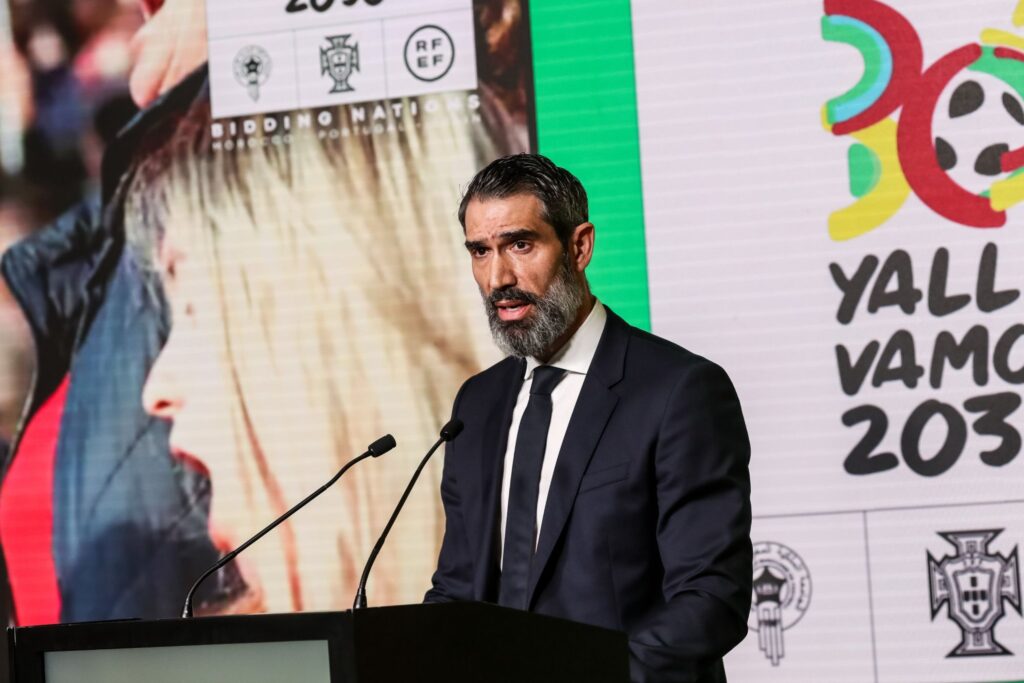Six years to the centenary of the FIFA World Cup, the 2030 FIFA World Cup organising committee has launched its slogan for the World Cup — ‘YallaVamos 2030‘. The event which took place in Lisbon on March 19th, showcased the bid’s pillars, narrative, website, social pages and video.

For the first time, three countries from two continents will host the competition, with Spain, Portugal and Morocco as host nations.
The star of the presentation was the “YallaVamos 2030” bid’s visual identity. It drew inspiration from native art, a style that resonates with artists across all three countries and continents. The design features bold, colourful arcs in red, yellow, green, and blue. Flags of the bidding nations are reflected in the identity.

2030 FIFA World Cup Logo
The logo celebrates the colours of host nations’ flags and symbolises the elements of their nature: the sun, the ocean and the wind.
The sun has three rays – representing their three nations – turned towards a future where together, they shape the football of tomorrow. Amongst the legends present at the unveiling are Luis Figo, Andres Iniesta and Nourredine Naybet.

Also, leading players from the current men’s and women’s national teams: Cristiano Ronaldo, Dolores Silva, Alvaro Morata, Irene Paredes. Others are Achraf Hakimi, Yassine Bounou, Ghizlane Chebbak and Emmanuel Adebayor who were also introduced as the Ambassador for Africa.

The event was attended by Fouzi Lekjaa, President of the Royal Moroccan Football Federation. Fernando Gomes, President of the Portuguese Football Federation, and Fernando Sanz of the Royal Spanish Football Federation.
Argentina, Paraguay and Uruguay are also listed as countries that would host a couple of matches at the 2030 FIFA World Cup. The first game, alongside a special centenary celebration, will be held in the Estadio Centenario in Montevideo, Uruguay. The second and third games will be held in Argentina and Paraguay, respectively.
The rest of the games and the opening ceremony will be held in Morocco, Portugal, and Spain. This will be the first World Cup held in Africa since 2010, in South America since 2014, as well as in Europe since 2018.
